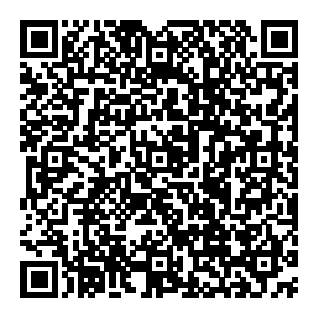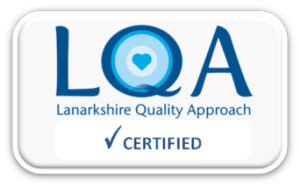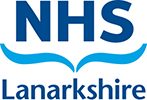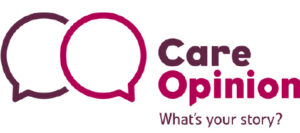Preparing for Day Surgery
Information for patients
NHS Lanarkshire Neonatal Department
PIL.PAEDUN.22_09475.W
University Hospital Wishaw General
Paediatric Unit, Ward 19
Day surgery
If you have any questions or if you are unable
to attend as arranged please contact the ward
Telephone: 01698 366197
Monday-Friday
8am -12pm
Preparing for Day Surgery
If you are unable to attend at the agreed time or you wish to cancel the procedure please let us know as soon as possible so that we can use the appointment for another child.
If your child is unwell or has a cold within 72 hours of their planned admission date please call us to discuss this; we may need to postpone their procedure for their own safety.
You can contact the Ward 19 on Tel No: 01698 366197
Monday – Friday 8am-12pm
You are advised to phone W19 the night before surgery to check if there is a bed available.
Fasting instructions
Follow fasting instructions given to you at pre-assessment. This is to minimise the risk of your child vomiting whilst unconscious and vomit getting into their lungs.
What to bring with you
- Your child’s favourite toy or comforter
- Any inhalers or medicines that your child needs
- Comfortable loose clothing and slippers for your child.
Most operations are done as a day case. This means that you should be able to take them home later the same day. However, in some cases your child may need to stay in hospital overnight. If this happens one parent/carer will be able to stay with your child.
On the Day
A selection of drinks and sandwiches will be available for your child after their operation, but you may wish to bring their favourite food with you. You can bring a packed lunch for yourself, or there is a selection of food available to buy.
No heating facilities for food.
Please bring your child to Ward 19 at the time stated on their letter. It is important that you arrive on time so that the doctors can meet and assess your child before their surgery.
The ward tends to be very busy. It would help us if your child is accompanied by a maximum of two adults. If you have other children, please arrange for them to be looked after for the day, including any that may be returning from school.
You should plan to be at the hospital for the full day.
Arriving on Ward 19
The nurse who will care for your child whilst they are in hospital will meet you all and answer any questions you may have. Your child’s vital signs (temperature, heart rate, respiration rate, oxygen levels and blood pressure) will be monitored and recorded. Numbing cream will be applied and we will provide a theatre gown for your child to wear.
Numbing cream will be applied to the back of your hands to reduce pain when cannula inserted
The nurse will explain about going to theatre and what to expect. Please ask any questions at this time.
A doctor will check that your child is fit for the anaesthetic and discuss the anaesthetic which will be used.
You will have a chance to ask the surgeon any questions you may have about the procedure before you are asked to sign a consent form to confirm for the operation to go ahead.
There are play specialists available to help keep your child distracted with play activities, both before and after their operation. There are toys and gaming devices available for all ages.
The Operation
The operation is carried out under general anaesthetic; this means your child will be asleep throughout the operation.
In the anaesthetic room:
A nurse and parent/carer can go with your child to the anaesthetic room. Your child can also take a toy or comforter.
It may be possible to give the anaesthetic with your child sitting on your lap. Your child may either have anaesthetic gas to breathe, or an injection through a cannula (a thin plastic tube which is placed into a vein through the skin, usually on the back of the hand).
Anaesthetic Gas
If the anaesthetic is given by gas, it will take a little while for your child to be anaesthetised. They may become restless as the gases take effect
Injection
Local anaesthetic cream (EMLA or Ametop, sometimes known as ‘magic cream’), can be placed on their hand or arm before any injections so they do not hurt as much. It works well for 9 out of 10 children.
Your child will normally become unconscious very quickly indeed.
Once your child is asleep you will be asked to leave quickly so that medical staff can concentrate on looking after them.
Your child will then be taken into the operating theatre for their operation. The anaesthetist will be with them at all times.
After the operation
Some children become very distressed after an anaesthetic which can sometimes be mistaken for pain.
The nurse will check your child’s vital signs and wound site regularly and make sure they have enough pain relief whilst recovering.
Once your child is awake from the anaesthetic they can start drinking and, if they are not sick, they can start eating their normal diet.
Staff will monitor your child regularly and assess their fitness to return home for a minimum of two hours. They need to have consumed food and drink, passed urine and achieve good pain control before being deemed fit to leave hospital.
At Home
Occasionally, the anaesthetic may leave your child feeling sick for the first 24 hours. The best treatment for this is rest and small, frequent amounts of fluid, toast or biscuits. If they are sick and this continues for longer than 24 hours, please contact your GP or NHS24 on Tel No:111.
The hospital experience is strange and unsettling for some children so do not be concerned if your child is clingier, easily upset or has disturbed sleep. Just be patient and understanding.
Your child will need regular painkillers following their operation, so please make sure you have enough children’s paracetamol and ibuprofen at home.
Your child will have open access for 48hrs post discharge. If you have any concerns regarding your child please contact ward 19 on 01698 366190 to discuss with nursing/medical staff.

Pub. date: June 2022
Review date: June 2024
Issue No: 02
Reference: PIL.PAEDUN.22_09475.W
If you need this information in another language or format, please e-mail:




